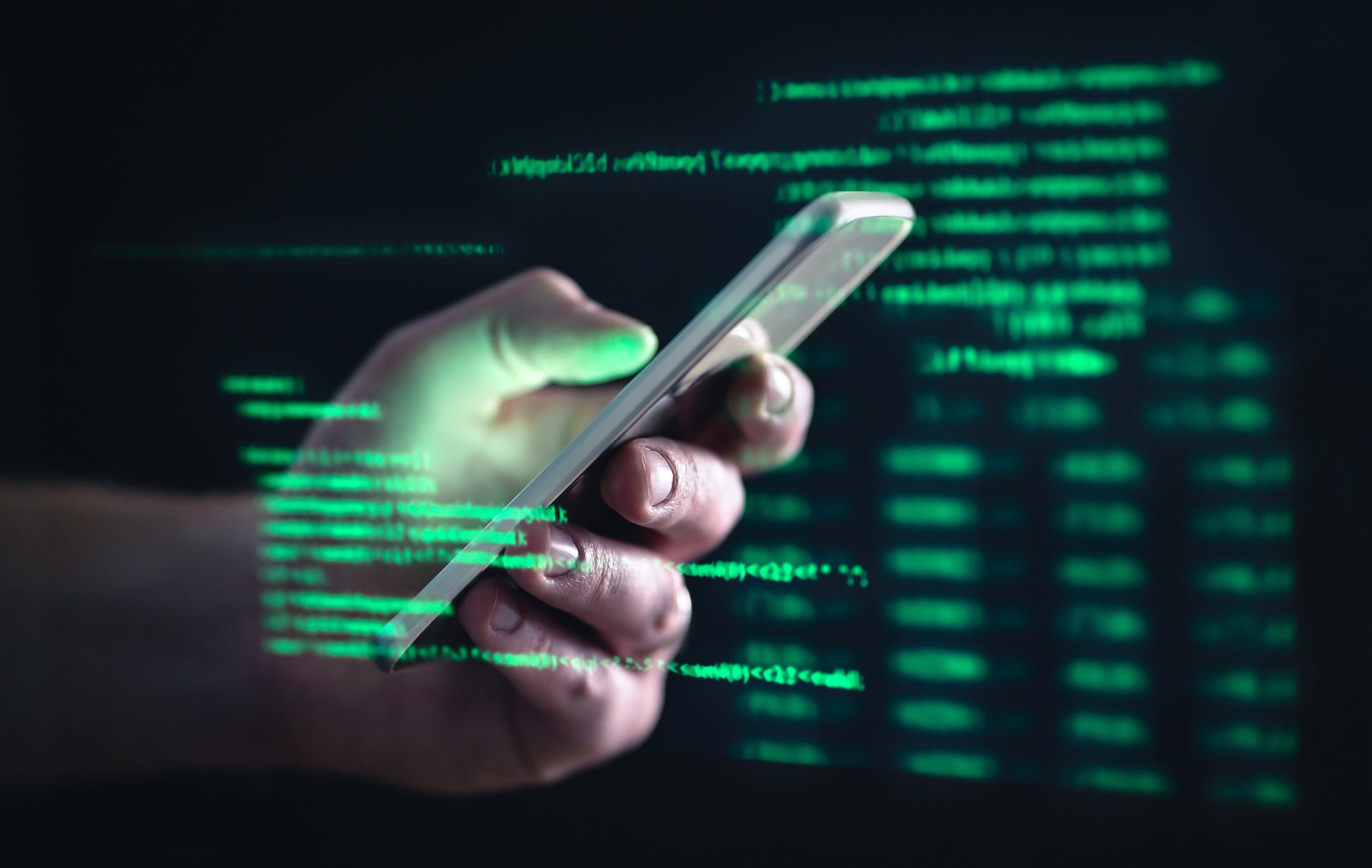Spy agency issues urgent warning to billions of smartphone users to avoid being spied on
NSA advice to Android and iPhone users follows years of surveillance operations from the US agency

Your support helps us to tell the story
From reproductive rights to climate change to Big Tech, The Independent is on the ground when the story is developing. Whether it's investigating the financials of Elon Musk's pro-Trump PAC or producing our latest documentary, 'The A Word', which shines a light on the American women fighting for reproductive rights, we know how important it is to parse out the facts from the messaging.
At such a critical moment in US history, we need reporters on the ground. Your donation allows us to keep sending journalists to speak to both sides of the story.
The Independent is trusted by Americans across the entire political spectrum. And unlike many other quality news outlets, we choose not to lock Americans out of our reporting and analysis with paywalls. We believe quality journalism should be available to everyone, paid for by those who can afford it.
Your support makes all the difference.The US National Security Agency has issued advice to smartphone owners to prevent their devices from being hacked and their personal details and money stolen.
The government agency’s Mobile Device Best Practices report is aimed at the billions of people around the world who use either an Android or an iOS smartphone, who are all exposed to a variety of cyber risks like spear-phishing attacks and zero-click exploits.
Smartphone users can protect themselves against many of these hacks by simply turning their phones off and on again, according to the NSA’s guidance.
“Threats to mobile devices are more prevalent and increasing in scope and complexity,” the US surveillance agency wrote in its guide.
“Users of mobile devices desire to take full advantage of the features available on those devices, but many of the features provide convenience and capability but sacrifice security.”
Among the standard advice of using strong passwords and using any biometric security features like face and fingerprint recognition, the NSA also offers other instructions that may be less familiar to average phone users.
Phone owners are urged to only use their original charging cords and to not use public USB charging stations to avoid their devices from being infected with spyware.
The NSA also recommends updating a device’s software as often as possible and to never connect a personal device to government computers via WiFi or Bluetooth, or to public WiFi networks.
“Disable location services when not needed [and] do not bring the device with you to sensitive locations,” the advice states.
“Do not have sensitive conversations in the vicinity of mobile devices not configured to handle secure voice. Do not have sensitive conversations on personal devices, even if you think the content is generic.”
Since it was formed in 1952, the NSA has grown into one of the biggest surveillance agencies in the world, hiring tens of thousands of employees to collect data and communications on behalf of the US government.
In 2013, former NSA contractor Edward Snowden revealed details of the agency’s worldwide surveillance activity.
Among the revelations was a program called PRISM, which secretly collected voice, text and video chats of millions of foreigners and US citizens through popular apps and devices developed by Apple, Facebook, Google and Microsoft.
Documents showed that the NSA gathered an average of 15 million telephone calls and 10 million internet communications each day in the year prior to Mr Snowden’s leaks.
Join our commenting forum
Join thought-provoking conversations, follow other Independent readers and see their replies
Comments